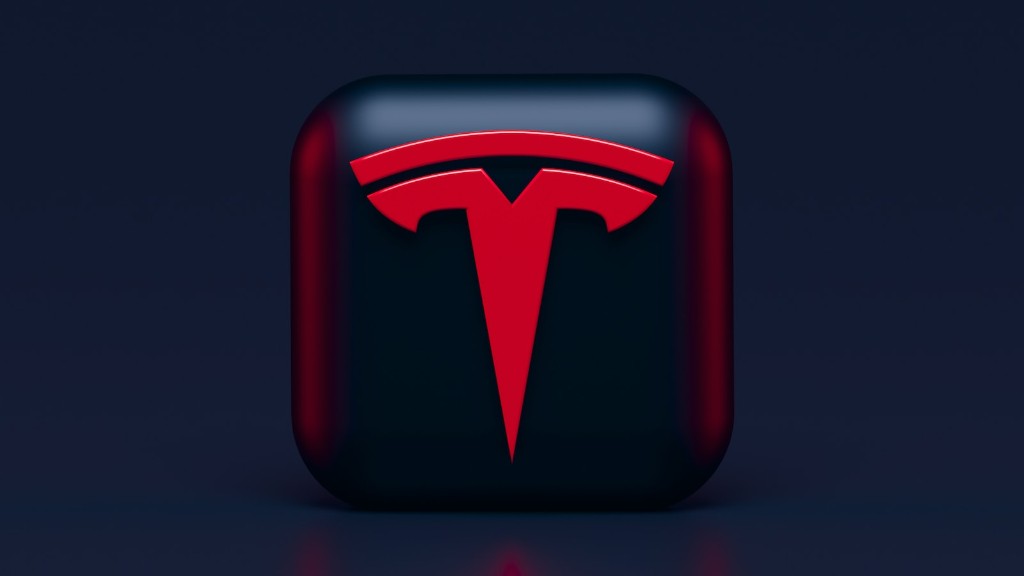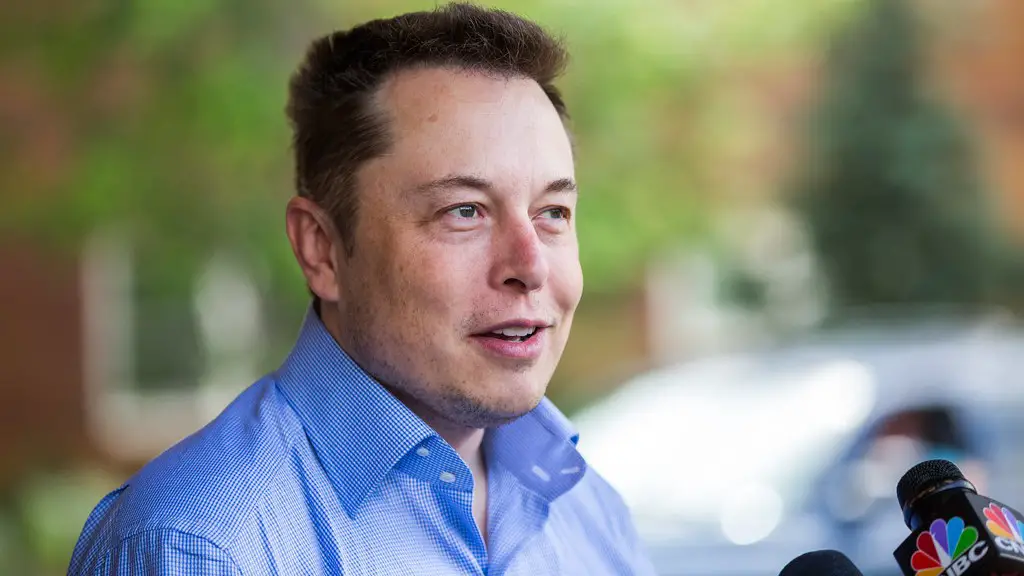Exploring Elon Musk’s Drive to Reach Mars
Elon Musk, the CEO of SpaceX and Tesla, has long been passionate about space exploration and has made it a priority to reach Mars. He has boldly declared that making humans a multi-planetary species is a top-priority of his, and his commitment to that goal appears unwavering. Over the past two decades, SpaceX has made impressive leaps towards achieving the seemingly impossible, and Elon Musk’s enthusiasm for reaching the red planet has only grown over the years.
Musk’s goal of reaching Mars is very much in line with what NASA has been trying to do since the 1950s. Both organizations have made great strides in space exploration, but while NASA’s goal has been more focused on data collection, SpaceX’s mission has been to reach the level of manned interplanetary spaceflight. Musk’s ambitious goal to one day send humans to Mars may make some people skeptical, but given his track record, it is clear that he is determined to make it happen.
Musk has been vocal about his belief in the urgency to reach out to space and its challenges. In one of his keynote addresses he said, “We want to become a multi-planetary species, that is the only way to ensure our survival. We must develop the capability of traveling to other planets in order to further our understanding of our universe and protect ourselves from any potential threats.” Despite the challenges associated with such an ambitious project, he is confident in his mission, and SpaceX has already taken steps to make his vision a reality.
One of the ways SpaceX has been working towards their goal of reaching Mars is by developing reusable rockets. These rockets are designed to launch multiple times and are cheaper and more efficient than traditional expendable rockets. The rockets developed by SpaceX have drastically reduced the amount of fuel needed to reach low earth orbit, thus making it easier and cheaper to reach higher destinations such as the Moon or even Mars. Reusable rockets are also more cost effective, with some of the most recent launches only costing around $40 million, a drastic reduction compared to traditional expendable rockets costing over $150 million.
In 2017, SpaceX launched their Dragon spacecraft, designed to carry cargo and even humans. The successful launch of the Dragon showed that space travel can be achieved with Musk’s vision, further fueling his enthusiasm for reaching Mars. Musk also expressed ambition for creating a permanent colony on our neighboring planet, stressing that it is important for humanity to “anticipate and be prepared for existential risks”. He goes on to say “I want to die on Mars. Just not on impact.”
Furthermore, Musk recently announced the development of a new methane-powered rocket. This rocket is expected to increase the cost efficiency of space travel compared to the already efficient reusable rockets, and is set to take Musk’s mission to Mars to the next level. It is clear that Musk’s enthusiasm is unwavering and he remains determined to make his dream of interplanetary spaceflight a reality.
The Evolution of SpaceX
SpaceX has made tremendous progress since its founding in 2002 and is now firmly established as the leader in space-based technologies. With the successful launch of the Falcon 1 orbital rocket in 2008, they became the first private organization to launch a spacecraft into orbit. This launch marked a paradigm shift in the space launch industry, as it revealed that reliable and relatively inexpensive launches could be achieved through their innovative technologies.
Building upon this success, SpaceX launched their Falcon 9 line of rockets in 2016. They successfully demonstrated that these rockets are capable of re-entering Earth’s atmosphere and landing safely, allowing them to be reused for future launches. This achievement drastically reduced the cost associated with space flight, creating a lucrative new industry for SpaceX.
Since their inception, SpaceX had been working towards achieving the seemingly impossible goal of reaching Mars. And the Falcon 9 launches were just a stepping stone in their journey. In 2018, SpaceX successfully conducted its first Interplanetary Transport System test flight. This demonstrated that they have the technological capabilities to reach Mars, and they are closer than ever in making their dreams a reality.
In addition, SpaceX is continuously pushing the boundaries of space exploration. They have developed innovative technologies such as the reusable Falcon 9 and the Starlink constellation of low-earth orbiting satellites. SpaceX is exploring the possibility of launching a fleet of robotic rovers to Mars in 2022, as well as a manned mission in 2024. These ambitious projects have the potential to pave the way for interplanetary transportation and the establishment of an off-world colony.
Musk’s Ongoing Investment in Mars Exploration
Elon Musk has invested heavily in advancing the technology necessary for reaching Mars. In 2012, he invested $100 million in SpaceX and has since invested an additional $200 million. This investment has been used to design, build and launch numerous satellites, probes, and other spacecraft, all of which have been integral in expanding our knowledge of the universe. Musk’s investments have also led to the creation of the Falcon 9, Interplanetary Transport System, and Starlink, which are all designed and developed to further the exploration of Mars.
Musk’s ambition for Mars is not just limited to space exploration. He intends to establish a self-sustaining civilization on the planet, and has founded the company Mars 2020 which is dedicated to pursuing this goal. With the Mars 2020 project, Musk hopes to eventually achieve the ultimate goal of colonization of Mars. Musk has voiced his motivations for such a project, writing in a blog post that “Los Angeles today is very different from what it was 100, or even 50 years ago. We all agree that the world needs to change and become better, and that’s what projects like Mars 2020 are all about.
In 2016, Musk made the boldest statement yet on his mission to Mars when he declared, “We’re going to make it happen. We’re going to build a self-sustaining city on Mars, and I’m confident that we can do it within my lifetime.” He went on to promise his followers that he would return to Earth after his mission to Mars is completed, declaring that “Earth will finally be my vacations spot.” It is clear that Musk is devoted to his belief that the exploration of Mars is the future for humanity.
The Implications of Reaching Mars
Reaching Mars stands to have an immense impact on humanity and our future. Scientists and space enthusiasts alike recognize the potential for scientific breakthroughs that could result from our first steps on Mars. This is why many of the world’s most influential minds, such as Elon Musk, have been so passionate about pushing for a successful mission. For Elon Musk, this is about more than just exploration and discovery. He believes that there is an urgent need to discover new technologies and resources which can ensure our species can survive in the distant future. As the head of SpaceX, Musk is the driving force behind making this a reality.
That said, much of the world remains divided on the significant time and financial investments that would be required to reach the red planet. This has led to widespread debate on the ethics and morality of using human and economic resources in pursuit of such an endeavor. While some argue that it is necessary due to the potential benefit to humanity, others argue that these resources could be better spent elsewhere, such as furthering green technology, reducing poverty, and tackling the current global health crisis. It is clear that whether or not the mission to Mars is ethical or even wise is an incredibly divisive issue within the scientific community and public alike.
In spite of these debates, there is no denying that the successful exploration of Mars could be ground-breaking for humanity as a whole. With Musk’s unrelenting enthusiasm and support, SpaceX and other organizations are undoubtedly closer than ever in making a Mars landing possible. The implications for humanity, should this be successful, could be nothing short of astronomical.
Challenges to Making Mars a Reality
Despite the progress SpaceX has made in recent years, there remain many technical and financial challenges that need to be overcome in order to make a Mars trip a reality. Firstly, the current rockets available are not powerful enough to reach Mars in a timely fashion. The average trip to Mars takes approximately six to nine months, leaving astronauts exposed to the vacuum of deep space and its associated risks. Musk has proposed the development of spacecraft that have the capability of traveling at speeds up to 25 times faster than existing spacecraft, in order to reduce travel time to just days. Whether or not such technologies can be developed and implemented is still a question.
In addition, the cost associated with a Mars mission could be exorbitant. Musk predicts that the cost of a one-way ticket to Mars may be around $500,000 and the cost of supporting a 100-person crew could range from $36 billion to $370 billion – an astronomical cost for a mission of this magnitude. In a 2017 interview, Musk outlined a plan to defray the cost by colonizing the red planet, stating that over time, the planet would become self-sustaining through its own resources. While feasible in theory, it is uncertain whether this would be practical in practice.
On top of the financial and technical challenges, the interplanetary environment poses serious health risks to the human body. Radiation, gravitational forces, and the inevitable food and water shortages are just some of the perils astronauts will face on the surface of Mars. Scientists and engineers are currently developing methods to overcome these difficulties and ensure safe exploration of the red planet.
These considerable challenges make Elon Musk’s mission to Mars a monumental undertaking, and one that is not guaranteed to succeed. Nevertheless, his ambition remains undeterred and his passionate rally-cries of “We’re going to Mars” remain ever-present.




